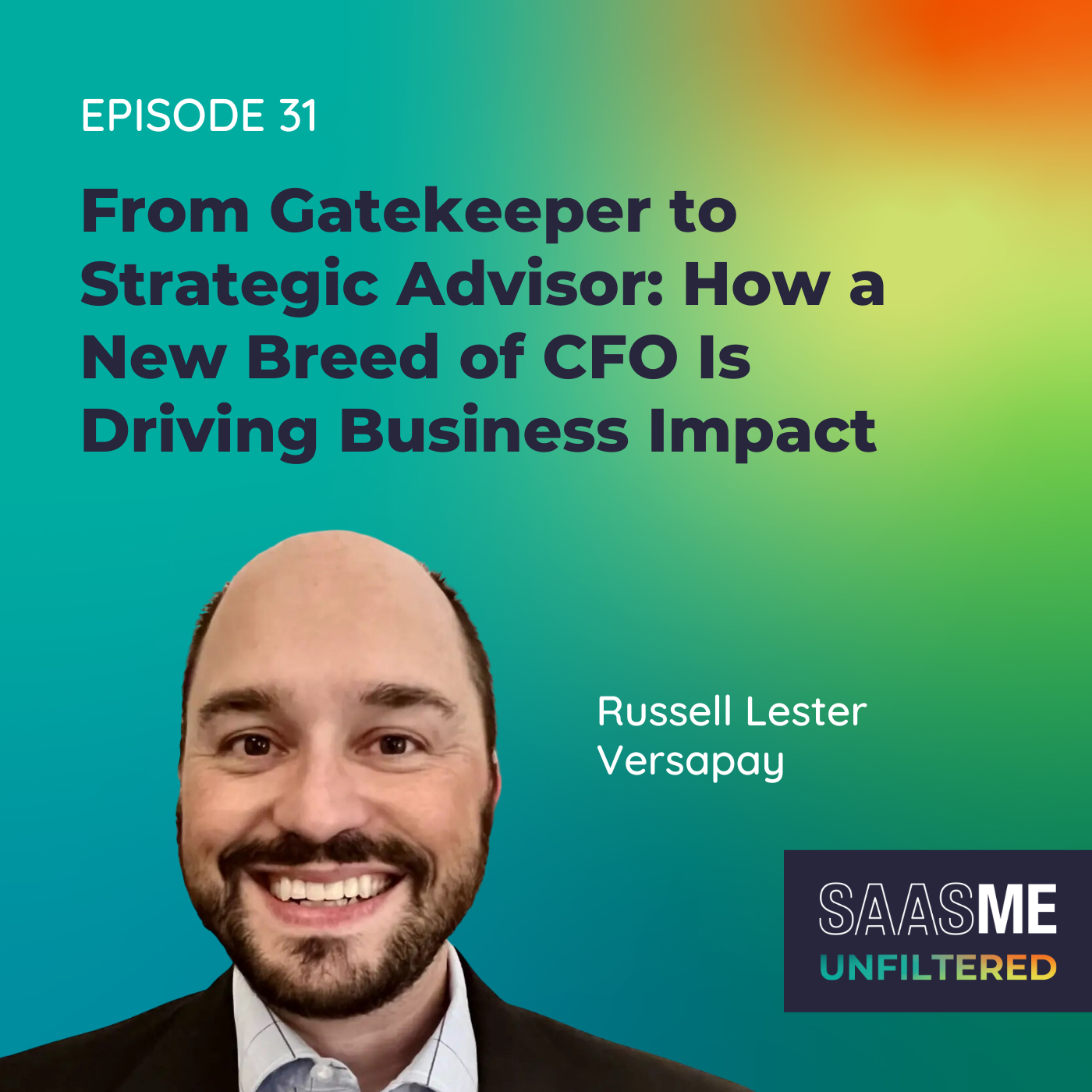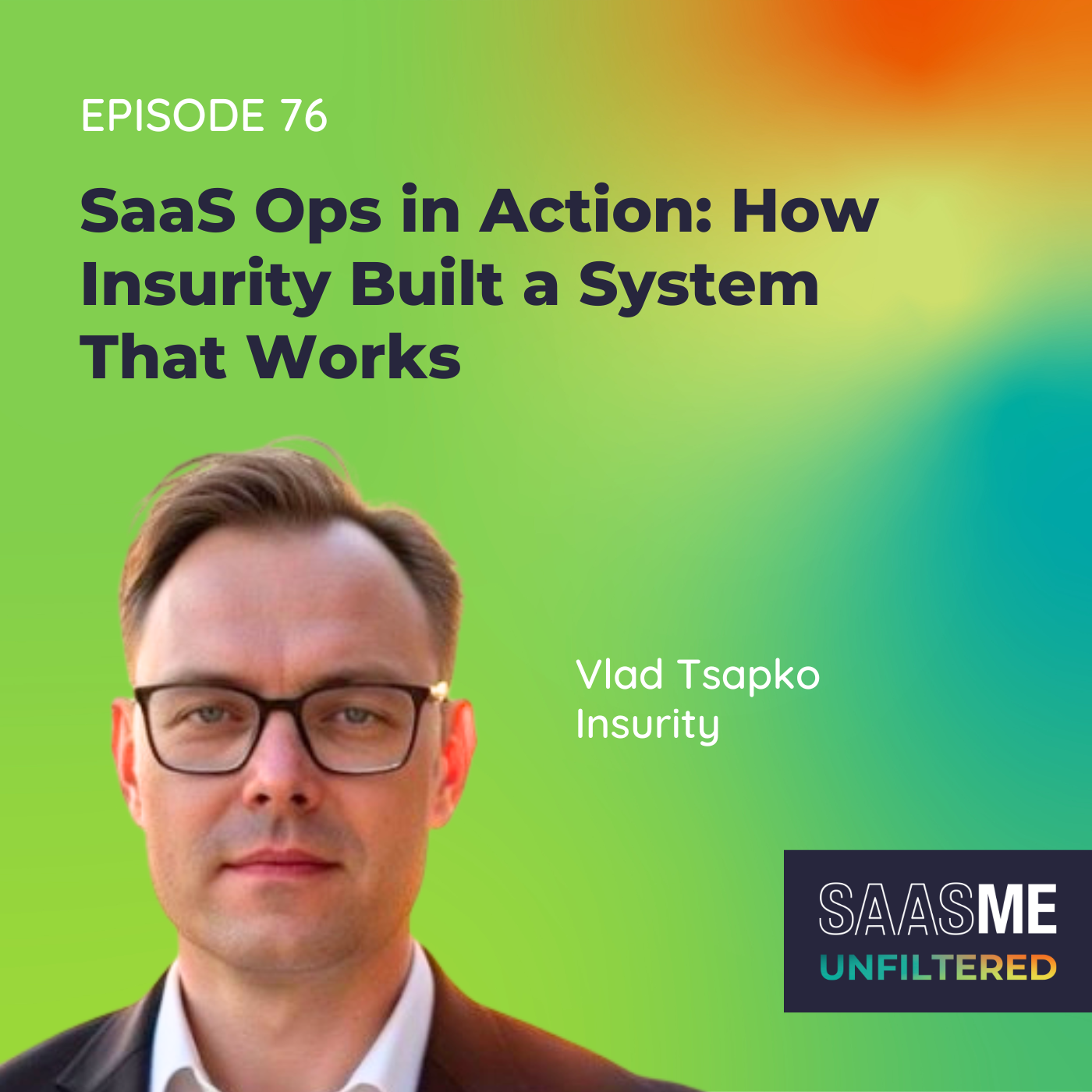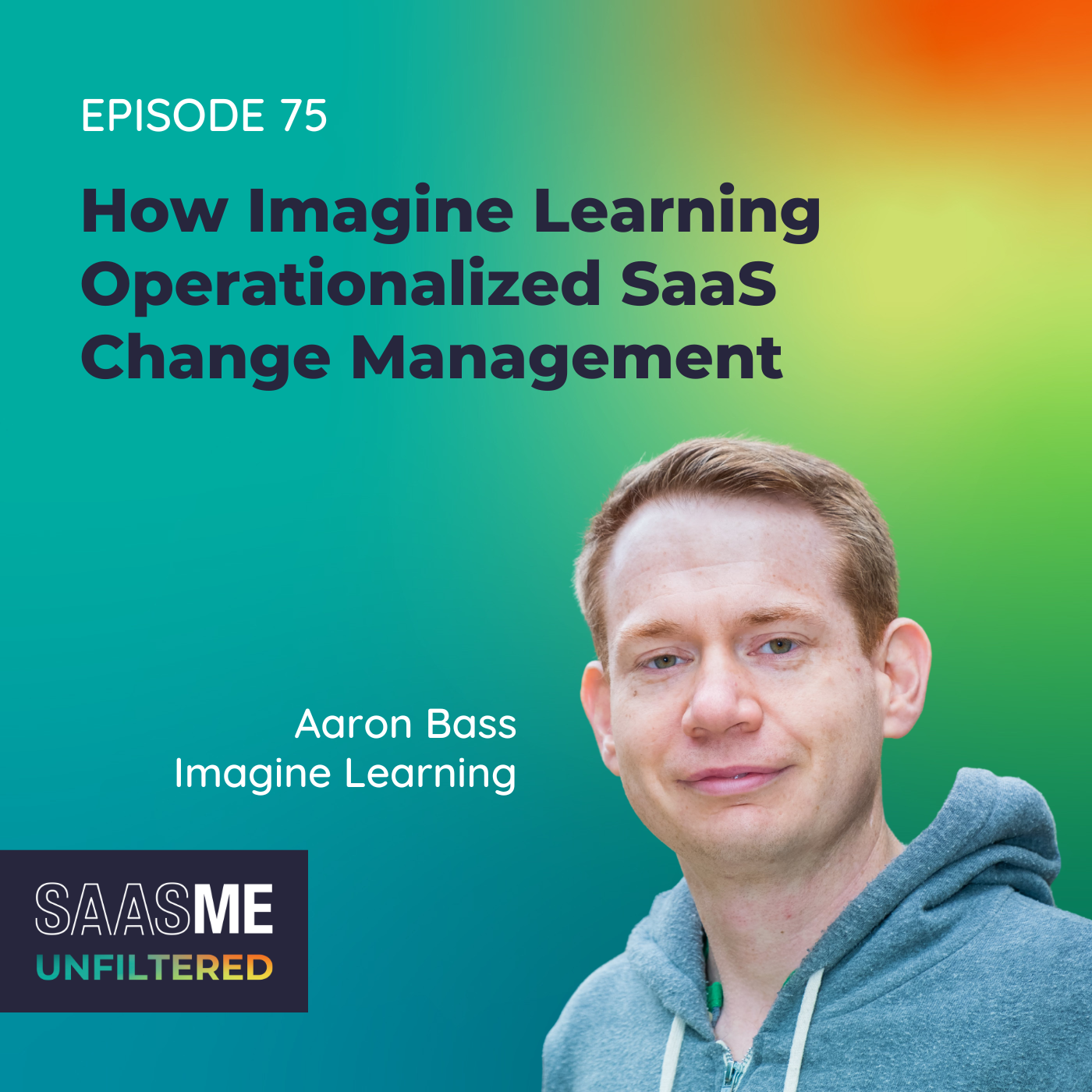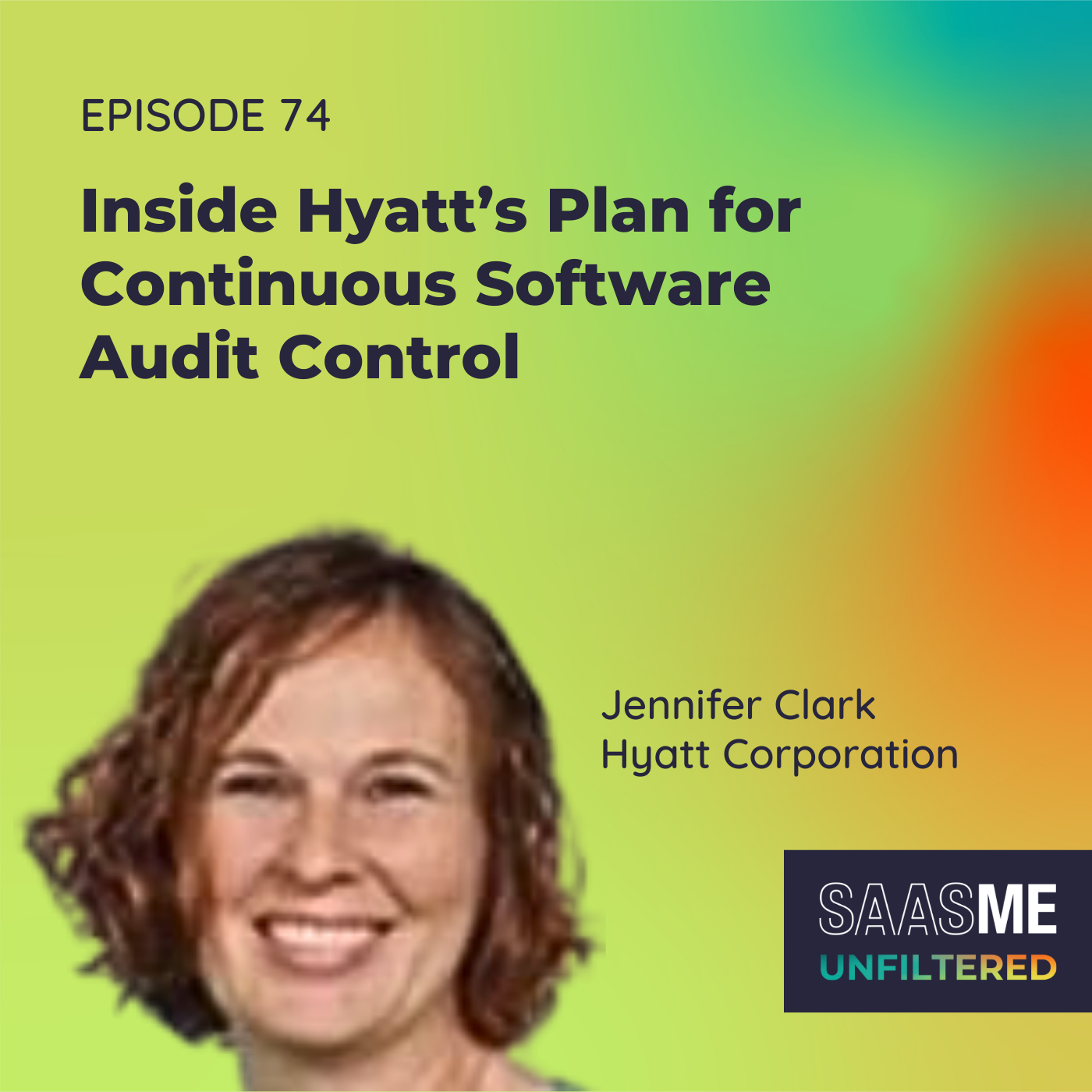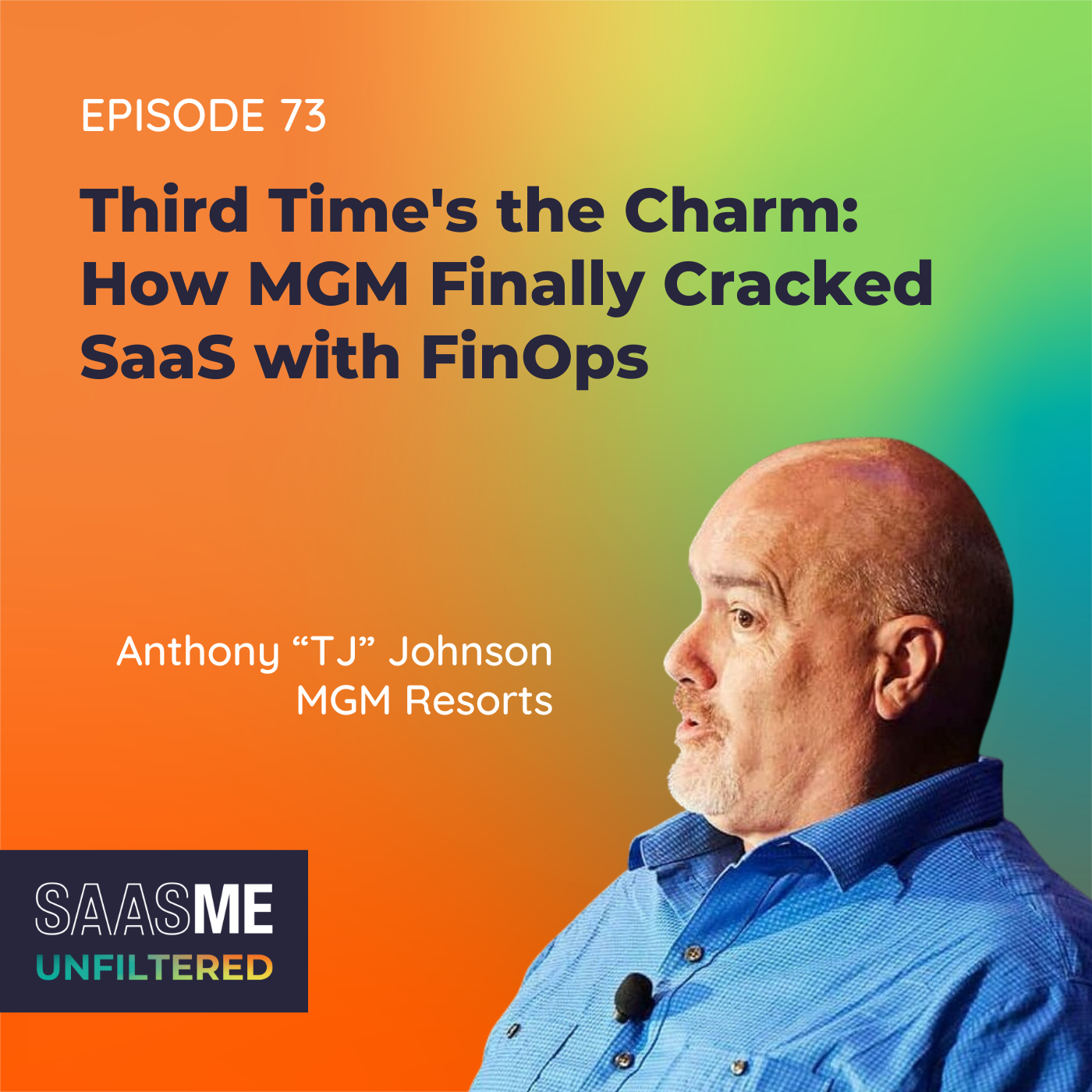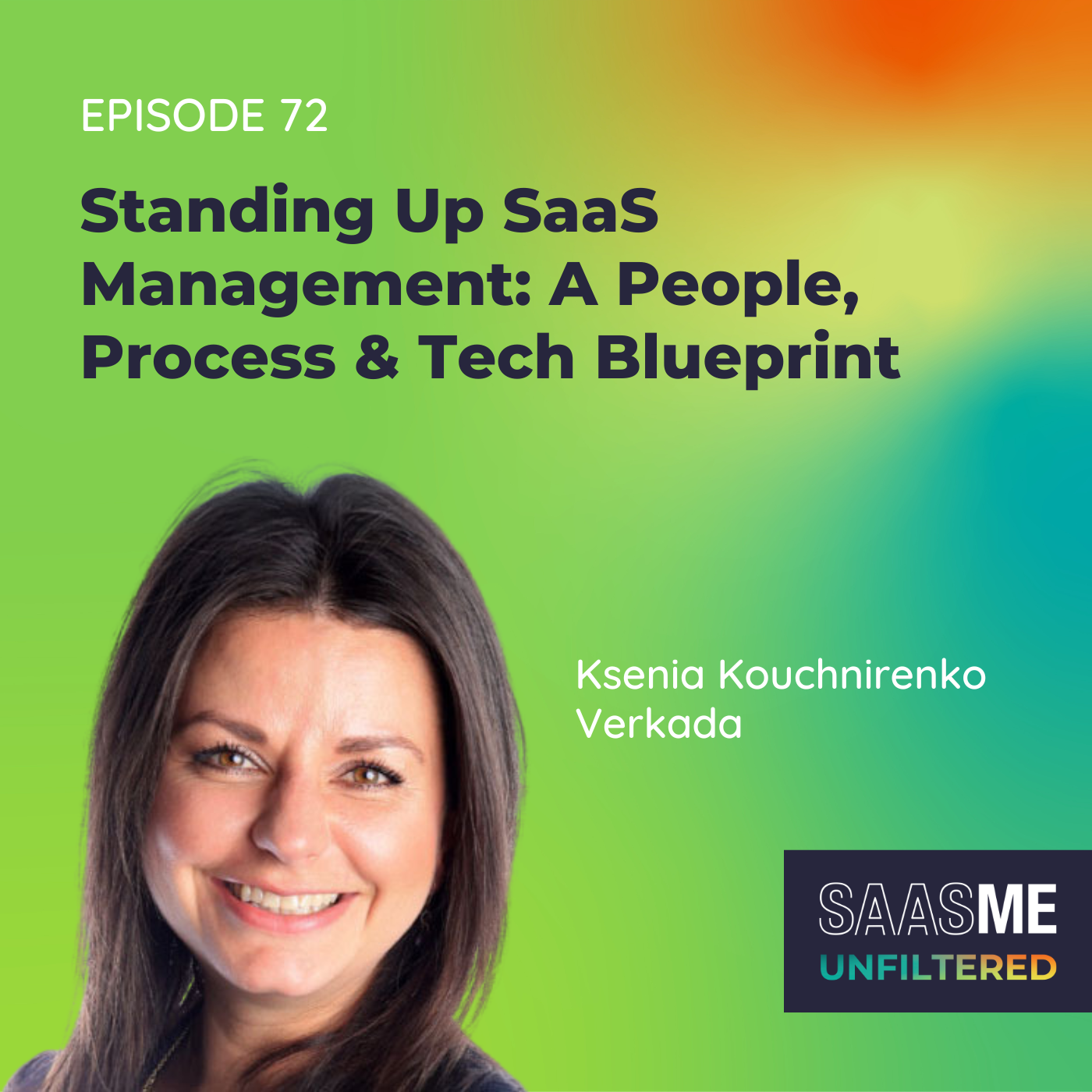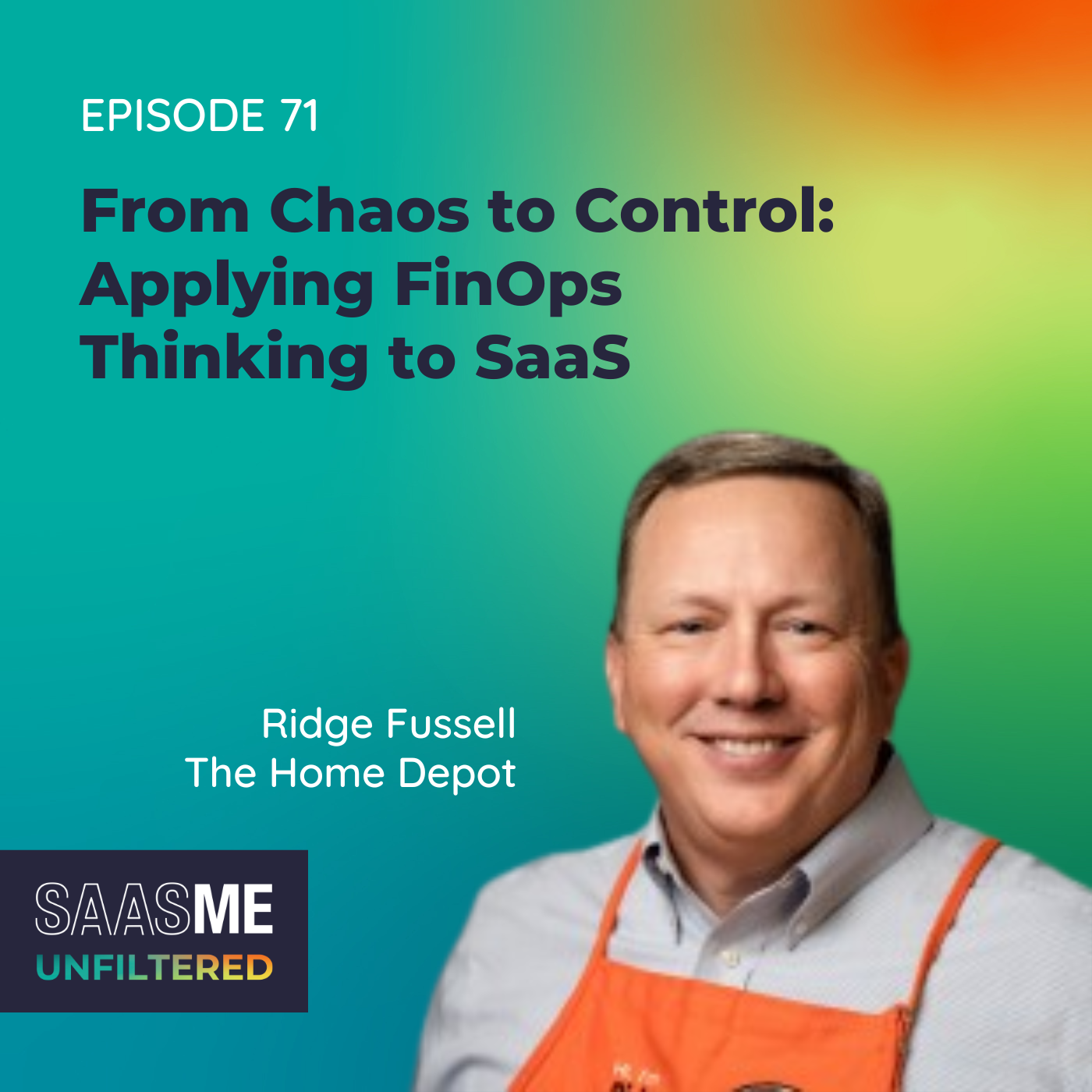Russell Lester: From Gatekeeper to Strategic Advisor – How a New Breed of CFO Is Driving Business Impact
- 0.5
- 1
- 1.25
- 1.5
- 1.75
- 2
Russell Lester: More and more CEOs are saying, and you can look at the CFO job profiles out there. They're looking for strategic advisors. They want the CFO to be the thought partner. Why is that? We see it all. We're privy to all of the good, and the bad, and the ugly that goes on behind the scenes, which the numbers bear out. And so we are here to tackle that challenge with data at the epicenter of all of that.
Cory Wheeler: Hello, hello, and welcome to SaaSMe Unfiltered: The SaaS Management Podcast. The show, we give it to you straight real- life advice from pros, knee- deep in SaaS every single day. SaaS management superheroes just like you. Here we are again for another episode of SaaSMe Unfiltered. It's great to have everyone joining us today. I'm Cory Wheeler, co- founder and chief customer officer here at Zylo.
Meredith Albertson: And I'm Meredith Albertson, chief marketing Officer at Zylo.
Cory Wheeler: Okay. Today, we have an incredibly passionate financial executive joining the podcast. I think I would phrase that as one of the standout features when we talk to this person. He is from the Atlanta, Georgia area and has had a bit of a non- traditional rise into the CFO role. Really starting his career in analytics, then moving into operational roles and then into finance. A three- time customer of Zylo's, first at Keap, then at Calendly, and now at Versapay, where he currently is. He is also a science fiction, and specifically Star Wars fan, which was probably perfect for raising his two kids and having a long- lasting marriage. Please join me in welcoming Russell Lester, CFO of Versapay, here to the show. Welcome to SaaSMe Unfiltered Russell.
Russell Lester: Thank you so much Cory and Meredith, happy to be here. Huge fan of Zylo.
Meredith Albertson: Well, Russell, welcome. We are absolutely thrilled to have you on the show today. Now I'm sure you've been feeling this. The role of the CFO expanding into what feels like a new era. Now the slowing economy seems to be a catalyst for this change. Companies are shifting their mindsets from this growth- at- all- cost mentality to responsible business growth. Even McKinsey notes this evolution and expansion of the CFO role in their 2022 report, the New CFO Mandate. We're going to link that in the show notes. And you know what? We're seeing it at Zylo too. Every sales cycle has a CFO involved now. They want to understand the value in the ROI upfront. More than ever, we see CFOs, leading the charge spearheading these initiatives for responsible growth. And Russell, you and your CFO peers have... are facing a lot of challenges, but also an incredible number of opportunities right now. How do you see that the economy is accelerating, the expansion of your responsibilities, and really the need to drive change within the business?
Russell Lester: Great question. I mean, there's no time like now to be a CFO. It is not for the faint of heart. It's not an easy role, and it carries a lot of gravity to it. But there's also this perfect storm happening, and it's a combination of things happening at the same time. You mentioned the macroeconomy. I'm not sure we could have predicted or foreseen all of the different things that would've transpired globally and in the macroeconomy over the past several years and in such a short period of time and with so much volatility and frothiness and change. I think you've got the macroeconomy also the nature of a remote workforce. So suddenly, your labor pool is distributed across geographies using different tools. There's also this massive acceleration in the use of data and the expectation that data fluency is just a normal part of everybody's daily job and then in interconnectedness of the back office. And so, with APIs, you have the fact that every tool can be connected. Now inaudible every SaaS tool says that. All right. Well, we've got an API for that. Well, what does that mean? It means everybody wants every tool connected, and every tool can't necessarily connect, but that's going to throw off massive amounts of data. And so when I think about how the CFO role is evolving, every week, I think about the fact that I'm being faced with opportunities internally and externally where more and more CEOs and leaders at the company are looking for trusted advisors. They're looking for the CFO to be that voice, the one that can see across the landscape of the different factors happening because we are prognosticators for a living, and that's what we do. We connect disparate data points. We try to see what the broader landscape is. What's taking shape? What does it mean for the company? What should we do about it? And we are primed to be that trusted advisor for the CEO in that way. You've also got though the economy is creating liquidity issues. So interest rates we call dry powder being the money that's kind of on the sidelines waiting to be invested. It's an interesting time. Venture capital and private equity funds are not as free- flowing as they were in the past. And guess what? Companies are actually required to be healthy and profitable and have good unit economics. I would argue two to three years ago, there were unhealthy unit economics pervading, and we're seeing many more companies are working to get healthier again. So all of this is happening simultaneously at the same time, which means the CFO is the one that is there to put it all together and to glue the facts together.
Cory Wheeler: That's a wonderful answer, first and foremost, and I fully agree with it. More expectations. More responsibility. You mentioned the need for more tooling and tooling being interconnected. So along with that, you're being asked to do more. Your FP& A folks are being asked to do more accounting, everyone across the finance org. So is there also a shift in resources that come along with this, meaning additional headcount and technology that CFOs need to rely on, and how is that evolving?
Russell Lester: Yeah, resources. This has been an economy in a market where a lot of companies have been going through cost containment, restructuring. The G& A functions often feel the brunt of that more than other functions. I mean, it's simply a fact that in some high- growth, high- tech companies, you protect at all costs your product and you and your engineering engine and your sales funnel. And so all the other groups have to step up and be part of the cost containment and cost- cutting. So that's one complexity to this factor because, at the same time, there's the need for new skill sets to enter into the finance arena. My team often says that I'm chief alignment officer just as much as anything else. And so that is because the chief financial officer carries that burden that the opportunity, that the chief fiduciary responsibility of seeing across functions. And so that... it actually means it's an exciting time to be a CFO and to be the one that is working to pull those things together. And so it's about presenting that data in context for people. So the resource needs to... I think of resources as systems, tools, processes. And so when I think about the type of people and the type of tools, it's people and tools that put the information in context and at the fingertips. Not just reports, but reports in context in real- time as they are needed. And so you need the type of talent that can do that too, that can assimilate information quickly and connect pieces together. I think about the general finance practitioners. They need to be able to interpret the P& L. Accounting, we need people that can pay the bills, run the collections process, but it's getting deeper than that. More and more CEOs are saying they're looking for strategic advisors. They want the CFO to be the thought partner. Why is that? Is because we see it all. We're privy to all of the good and the bad and the ugly that goes on behind the scenes, which the numbers bear out. And so we are here to tackle that challenge with data at the epicenter of all of that.
Meredith Albertson: Russell, I agree with you. I think it is really an exciting time to be a CFO. I love that, the chief alignment officer. I think that's incredible. You mentioned a couple of different things that businesses and CEOs are looking for in their CFO partners, and I want to take that one level deeper. With the expansion of the roles and responsibilities and the things that you're looking at and you're faced with, how does this start to impact the skillset and the experience of the financial and procurement professionals that you may have on your team? What do they need to be thinking about leaning into maybe expanding their knowledge base and their skills?
Russell Lester: Yeah, there's this tension of do you hire generalists or do you hire specialists, and can you actually be generally specialized? Can you find people that can actually do that, which would actually be being highly specialized across a broad range of topics? And so for me, my past three CFO roles would be what I would call non- traditional in that I've not only owned finance and accounting, financial planning, but other areas like analytics, like revenue optimization, some operational roles in some of my previous CFO opportunities. And so what I am finding is more and more people need to be data stewards and analytics savvy, and the tools they need to know how to use are raising the bar on that analytical savvy. Do you need to know SQL? Do you need to know database structure? Do you need to understand referential integrity and table design and schemas and the fact that data engineering includes extraction and transformation and loading of data and security of data pipelines? Well, in the past, you would relegate that to an IT data warehouse group this big, never seen, never heard, right. In the present, we're modernizing to a point where finance teams are hiring almost full stack analysts, of which many of them, the most robust analysts, can run the full range of that process even in the FP& A world, accounting world. With robotic process automation in the accounting world, now you have accountants that are beginning to programmatically automate things, and it's all of the SaaS tools out there that are proliferating this. It's the SaaS tools that are driving this innovation of not only how companies are doing work but the talent that people need to do the work.
Cory Wheeler: Great perspective, Russell, and you're teeing me up a little too easily here. You're talking about change. You're talking about expansion of the role of the CFO driving very real business impact. Connecting that to SaaS and the proliferation of tooling that have APIs that allow you to interconnect that data is that critical first step. So you've done the rollout of projects affecting business impact in very meaningful ways, and one of those that certainly we're familiar with is implementing a SaaS management strategy, and you've now done that three times. So when you look at the P&L, and you look at your balance sheet, when you look at expenses, OpEx certainly, how did you identify SaaS management as a business priority three separate times?
Russell Lester: It was really, at the core, the same primary catalyst. I mean, what's the role of the CFO? It is to maximize the runway for the business, is to reduce risk, is to unlock potential for a company. It's to empower your peers. It's to help the CEO see around the corner. It is to maintain that integrity of the financials and of the information that it can be trusted that it's timely and accurate. And so what you have are companies that are working to grow exponentially and achieve high growth, hiring lots of people joining companies with all these new tools they want to use, dry powder, deploying funds, getting approval to invest, spinning up all these tools. Tenure is different now. People don't stay as long at companies simply because sometimes they see opportunities elsewhere or the market dictates so. And so you've got this massive wave of all these new tools. And APIs, the ability for tools to connect one to another, also means, well, you don't need to buy one tool, one singular tool to do everything. You can stand up the best of breed in all these different categories. But sometimes, standing up all these best of breed in different categories means you have this massive blast radius of tools all over the place. Well, there's an opportunity there. There is, of course, an opportunity to simplify how work is done, but there's also massive cost overrun. So what we saw at all three companies were the combination of factors, lots of new people joining the company, the proliferation of lots of new fancy tools that are all great in their own right, tools that had come and gone, and the people were no longer there that acquired them, and an opportunity for the finance team to be the hero to identify where there's leakage or wastage in the system, but not in a way that's the old- fashioned way. The traditional way was to just say no or to ask people to cut costs but walk away. Now we're in a point where the finance team can be the tip of the spear, helping the company see where there's overlap, helping to rationalize the footprint, the technology footprint in partnership with other parts of the company, the IT organization, the security part of the organization. And it's part of that chief alignment officer role includes what does our footprint need to look like? Not that we need to be the experts at the technology footprint, but at least point out, " Hey, do we need five project management tools?" Maybe, but probably not, right.
Cory Wheeler: 100%. And you're hitting on relationships, internal relationships, that relationship between finance and IT. So outside of the C- suite, CFOs are driving collaboration across the business now more than ever. You're the alignment officer. So on their own, both IT and finance are viewed as strategic business functions. But the next generation of CFOs are seeing identifying those potential impacts of building those business partnerships and specifically between IT and finance when we talk about technology and tooling. So in your past roles at Calendly, Keap, today at Versapay and there's a strong IT and finance partnership that's always been part of the organizations that you've been with. So what does your relationship with IT look like? So maybe explain how that relationship begins. What your roles are. And the initiatives that you are working on together.
Russell Lester: It's really, and every role that I've ever held, and certainly as I've moved into leadership and into the CFO roles, partnership is really important to me, and collaboration's really important to me. And I'm not a perfect leader, and I don't do it perfectly, but I try to bring my peers along on the journey. I try to avoid surprises. I try to lead through inquiry to ask questions. And this is better when you have shared goals. And so finding common ground between the CFO and the CIO or the CFO and the CISO, the chief information security officer. What are those common ground areas? Well, both want to certainly maintain top security for the company's data assets. There's also the desire to avoid the over- proliferation of tools, extra tools to oversee access control issues to figure out how do we properly deploy capital. And so I think it's about find where the common ground is where it begins. That at the root of that is yes, you're saving money. The reasons you want to rationalize your investments are to ensure you're getting a positive ROI. But there's a myriad of benefits to doing that. It's actually makes people's work easier if they're using fewer tools that are not connected well together. Not only that, there are probably people maintaining tools that aren't being used, right, and so it reduces their pain. There's fewer security issues with tools that didn't perhaps pass security muster. They may have years ago, but they wouldn't presently. So there's all these benefits to doing that, and it's really just about finding common ground and partnering together, and tools like Zylo help you do that. It's funny, this is a plug, not that you ask for it, but that's why three companies into this now we continue to come back and use Zylo because not only is the user interface so slam dunk, easy to use, so much so that everybody immediately understands what it's telling them when they open it up. But it serves that use case both for a finance user and an IT user, a procurement practitioner, or a budget owner. Not just the look and feel of it but the different use cases that you can do within it. And there's other tools out there, other SaaS tools that are useful in the same way. But as it pertains to solving this issue, why I've resonated so much with Zylo over the years?
Meredith Albertson: inaudible Russell, you're teeing us up on our next questions today so well. It's fantastic. Going back to, you know, were talking about just kind of the visibility into the SaaS management problem and that visibility being important for IT, for finance, for procurement, often we're seeing SaaS management begin as an IT- led initiative, but we're starting to see that really change with the evolution of the CFO and at Versapay you actually saw that shift from IT to finance and love to hear more about how and why that change happened.
Russell Lester: Procurement can live in different places. I don't know that there's a right or wrong, but there's probably what the right fit is for the company for point in time. And if your desire is to make sure you're rationalizing your investments and getting a good ROI on those investments, that is the bread and butter of a finance organization. IT certainly does that. When IT is making recommendations for investments, it's not that they don't consider those factors, but it's core to what we wake up and think about in finance. So it's natural for finance to be interested in understanding where there's wastage in the system or SaaS tool scope- creep or overlap. And so I think for me it was that with a tool that's easy because I could either go into the ERP system and begin to look at line items in the general ledger and then drill into that and double click and see what the journal entries say who we're paying. But then I have to filter out and figure out which of these are software providers and of these which type was this kind of software. It was just like it's too hard. And so if there's a tool that can do that more easily for me, I'm going to be all about that. It actually accelerated time to value and time to insights for the finance team. And so I think the reason why we placed it in finance was not at the expense of IT, was to come alongside IT and help carry the banner with them, reducing the tech footprint, which gets out of control. I mean, companies out there have literally hundreds of SaaS tools that are proliferating in the ether that their employees are using inaudible that they know about or that they don't know about in the case of shadow IT and it's the shadow IT that can be the scariest of all.
Meredith Albertson: If you are not unlocking the full value of your SaaS, what are you doing? There is no denying it. SaaS is mission- critical to your company's growth and success. And as the number two operating expense for most organizations, it's your biggest opportunity to save money and drive efficiency. The time is now to do something about it. Join me and your fellow IT, SAM, finance, and procurement leaders at SaaSMe. SassMe is the industry's only dedicated SaaS management event where you can sharpen your skills, hear from your peers, and learn how to unlock value and responsible business growth through smarter SaaS management. Register today at saasme. com. That's S-A- A- S- M- E. com.
Cory Wheeler: That's right. The reality is it's not entirely ITs problem. They don't own all of the software across the organization like they did a decade ago. So that partnership where you're with them lockstep is a great way to frame that out. What was the hardest part of building the relationship with IT in your experience? And the flip side of that is what are the biggest determining factors of success for that partnership as well?
Russell Lester: You can have good intent, good people, good tools, good processes, but it really comes down to what is the mindset or the company culture. And is there a mindset of fiscal stewardship where the budget matters, where budget owners are asked to manage to their budget, where forecast variances are not just blamed on finance. But everybody in the same way that when we say, " Well, who owns customer success?" In the past, we might say, " The customer success team." In the present, we say, " We all do." And so, who owns forecast accuracy? All of us. Who owns budget creep? All of us do. And so, it has to be modeled from the top, and there needs to be a good buy- in and advocacy from the CEO. And so when it works well, or the hardest part of building the relationship is ensuring there is that bridge, that advocacy, that understanding that it's not just about finance coming in and saying no. It's about finance coming in and being a thought partner to say, " How can we find a better way so that we can redeploy this money that we've now saved the company towards things that will help us grow more," which we all want.
Meredith Albertson: Russell, working with companies on SaaS management programs, we're working a lot with IT, finance, and procurement teams. And when we start conversations, and the project starts with finance and procurement, they are very excited to bring in their IT partners to the conversation. When the conversation and program building starts with IT, we're witnessing sometimes some hesitancy for IT to bring in their finance. There's not quite that level of enthusiasm to collaborate with finance and procurement. How have you historically changed that?
Russell Lester: I would begin at the root of what causes hesitancy. What makes people hesitate? Just when you think about in life in general, what causes a human to hesitate? Well, we hesitate when we're uncertain and when we're uncertain when there's fear or lack of understanding. And so sometimes there could be the thinking that someone's going to get in trouble or someone's done something wrong, or this will be punitive. And so I think it begins with understanding what's the root of the hesitation to bring other partners in. Often it's IT going to finance, asking for budget to invest in the proper things needed to ensure that we have the security posture we need and that people have the tools they need. And so the teams are sometimes at odds in that regard. But if you focus on what I previously said about common ground, shared goals, and overcoming the potential areas of hesitation, then you can kind of remove the defensiveness or the barriers that could have been a blocker to progress and turn that around, actually use that same emotional energy positively to create inertia and forward progress.
Meredith Albertson: Yeah. Find that common ground. And you mentioned earlier, it's leading with curiosity and asking those questions. I really, really liked when you had noted that as well. So we've talked quite a bit about how you built programs around SaaS management with your IT and finance team at three different companies. But for a minute, I want you to imagine that you are a CFO at a company that doesn't have a SaaS management platform, and it's IT or finance team is coming up to you. And they're asking for you to sign off on this new investment. What would a compelling business case be, or what are the reasons that they would need to present to you to get that sign off and the yes?
Russell Lester: I have a mission statement with my group around generating timely, accurate, relevant and proactively persuasive insights that grow revenue and unlock efficiency. So I'm looking for things that grow revenue and unlock efficiency, but let me click up a higher altitude. What we're looking for are things that support the company plan. And so, what are the critical few priorities that the company needs to achieve to achieve the vision to achieve the plan? And so, how does this investment support that? Obviously, as a finance practitioner, I'm thinking through is it generating a positive ROI? What's the payback period? Does it pay for itself? The best investments are those that pay for themselves and do so very quickly. I mean, that those are almost no- brainer investment decisions. And so, for me, it really is about making sure that the person asking for the investment knows what purpose the tool will serve and what are the alternatives they consider, and did they realize that we already have tools that may do that or what is it about this tool that's better than another tool? Did they think through that? Are they just bringing a tool they used at a previous company because of familiarity, or is it actually the best tool? So I guess I could keep rattling on. I guess it would be about asking good questions, ensuring the conversations are being had internally, and that we know what success looks like. What are the outcomes we're looking for that investment to drive, and is that... And they may be great outcomes, but are they aligned to the company vision, the plan for that year?
Cory Wheeler: Yeah, that's super interesting, Russell. This is kind of getting down to the approval process and maybe to click into that a little bit more. You at Versapay are the final approver for software spend, and it's super interesting to hear you articulate how you go through that checklist of approvals as you're looking at each and every one of those. I think everyone listening should take note of those things. " As you're going for approval, this is how a CFO thinks about it." Why is this brand new? Is it because of the era of responsible growth that we're in? Have you always been a final approver, or did something kind of trigger that need for you to say, " Look, OpEx has expanded in X amount of over the last X years, and now we need that fiscal mind as a part of this process?" I know that's a many- layered question, but have you always done it that way, and when did you introduce that and why?
Russell Lester: It is a many- layered question, and it makes me reflect back on my career journey and just all the different ways this has looked or felt at different businesses, at different stages in different times. I think about, it's not that the CFO didn't have the authority in the past. The CFO could say no, but I think depending upon the state of the economy or the state of liquidity for the company, often their no was almost like we often hear with chief legal officers. Chief legal officers will often say, " I'm going to give you advice. You can choose to not take my advice, but you do so at your own peril." And it's similar. I think in the past, the CFO could give advice, and they could say, " I wouldn't recommend that investment," and business leaders would proceed to make the investment. But also, I'm going to go out on a limb here. I would like to think that CFOs are modernizing and becoming stronger CFOs. That we're getting more well- rounded, that we're getting access to a broader purview of the business because of tools, because data is now driving so many decisions, and we are naturally inclined to be able to consume and interpret and leverage data as part of our every day how our brains are wired. I think it's putting us in the position where we can elevate the role of the CFO to a more strategic level where instead of just saying no because it spends money or it breaks the budget, we can actually be part of the holistic conversation to figure out where does it fit.
Meredith Albertson: Russell, I want to double- click a little bit on procurement. We've touched on a little bit today. But finance typically owns procurement, but when your business doesn't have it doesn't have a procurement professional or procurement team, what's your strategy or process for tackling those historically procurement responsibilities?
Russell Lester: Get Zylo.
Cory Wheeler: Yes, there it is.
Russell Lester: I mean, it is essentially turnkey procurement. I mean, in a way that... for those that don't know how it works, as it consumes the data that's informing what tools are being used and ingests that information and visualizes it in a really easy way and highlights where there's X number of tools of X type. So you need a tool. I mean, I said, get Zylo. Obviously, what you need, though, in lieu of people, you need tools or processes because, otherwise, if you just expect some... If it's not part of someone's daily job and they don't wake up each day and think about it's unlikely to get done with excellence if at all. And so now even better if you can combine both having the resources and the tooling, but tools like Zylo and I happen to think Zylo does this so well, I mean, particularly how easy it is to stand up and begin using and getting insights immediately. I can't tell you how many meetings I've been in where I sound super smart about something there. I can just get the answer at my fingertips so quickly. And my team jokes that I have a ton of tabs open at any given time, and I do. If you ever saw me share my screen, I have 40 or 50 tabs open because, as CFO, I now have access to all these tools. Well, Zylo's one of my tabs. And if anybody mentions any tool, " Don't we have a tool that does such and such? What do we spend on that? When is that contract up for renewal? Didn't we have another tool? When did we stop using that tool?" Boy, in the past, answering that by digging into the ERP, digging up invoices, slacking people in accounts payable, it would not have made me look very smart. Now I can answer it in real time. And so I think it's all about if you don't have the person or you don't have the tool, you got to find some way to get access to the data and doing it manually through the ERP is painful, but it begins that way. Sometimes you do an extract from your general ledger, and you start filtering in Excel on all the tools, and you start manually adding tags of what type of tool is it. Who owns it? Right. You can do that. You can do that. That's the painful route, but it's still necessary. It's still worth doing something versus nothing because, " There's gold in them thar hills." There is gold in the hills to mine in managing the scope- creep, which is your SaaS platform.
Meredith Albertson: While we are thankful to be your single source of SaaS truth in one of your many tabs that you have opened during meetings. Some of our listeners today, I know we have CFOs who listen to the show, who trying to determine is the right time in their business to add procurement. Is it a certain revenue level? Is it a certain company size? What are the things that are happening in the business that you start to think, " Yeah, we need to add a procurement professional or start adding more members to that team?"
Russell Lester: Great question. Probably sooner than you think. It's interesting how many companies think. I know even startups or smaller companies I've been a part of it's like, " Well, aren't we too small to need that?" It's like, " No, we literally have hundreds of tools we're investing in." So it's not always about size of company. It's about how quickly is the company evolving its operating processes, and changing the way it's doing business, and onboarding new people and new methods. I think that's driving the need is even if you're a smaller company, if you're in high growth mode or you're in transforming of your processes or your back office or your funnel management tools, I bet you you have more tools cropping up that you know about and those you don't even know about because employees have credit cards. There are free tools out there. They can SSO those tools into their office or Gmail accounts, and next thing you know, you've got all these tools that you didn't even know existed. So I think the answer is sooner than you think.
Cory Wheeler: Russell, you are doing awesome work at Versapay. It's all leading to very real business impact. What have you figured out that other CFOs haven't? And maybe that's a little bit too much of an assumptive question for you, and I know you're very humble. But are there missed opportunities out there that some CFOs aren't thinking about today?
Russell Lester: Well, I don't know that I've cracked the code. I aspire to be a great CFO, and I'm doing the very best I can for Versapay. Listen to your people, surround yourself with a really strong team, partner with your peers, try to see the big picture. I create what I call... I have a nerdy way of expressing it. I say, " I'm assimilating my neural network," which merely means I'm asking a lot of questions because I'm formulating how all of this is connected. And I ask the questions and create that neural framework in my mind to know that when someone mentions something, I either have a tab open or I recollect having heard about it. And I know either what that investment is for or what that tool is doing, the value it's driving or not driving. How that data point connects to this data point. I try to lead with inquiry and empathy. I try to be an approachable, humble, but smart and firm but fair leader and about the people. And so I'm trying to balance that. I'm trying to use data is a secret weapon with all these tabs open, ask great questions, surround myself with fantastic people, and just wake up each day trying to make the people I serve and the company better so we can be better for our customers.
Meredith Albertson: Russell, we certainly think you are an exceptional leader, peer, partner to us and our business, and we can't thank you enough for spending a few minutes out of your very busy day with us. We want to close out the show with a little bit of rapid- fire questions. This is fun. This is no hard- hitting data questions in here, I promise. But all right, Cory, I'm going to let you get started with rapid fire.
Cory Wheeler: Yeah. I'm not going to let you off the hook on that last response. It was eloquent. It was perfect. I loved it. But tell me the number one skill or trait that a CFO must have.
Russell Lester: Ooh, I don't know that other CFOs will agree with me on this, but it's the number one skill or trait I hire for, and it is what I think my secret weapon is, which is curiosity.
Meredith Albertson: It is summertime. We would be remiss if we didn't ask. What is your favorite vacation spot?
Russell Lester: Yeah, this is super controversial because there's really haters out there. I don't understand it, but our family loves Disney. I get it. People don't like, " Oh, I don't like the crowds. I don't like lines." Look, we tried to take a beach vacation. The beach was closed for dune restoration. It rained the entire time. And at the resort, there was literally one or two decent restaurants, but they really weren't even that decent. So for us at Disney, you have so many options, some of the best food in the world, crazy fun rides, good shows, and yes, there's some lines. But if you know how to hack Disney in terms of doing the parts in the right sequence, you can have a great time inaudible. We love Disney.
Meredith Albertson: I've got a trip coming up later this year. I'm going to have to get your trade secrets on hacking Disney.
Cory Wheeler: Okay. What is your... It's a two- parter sort of rapid fire. What are your favorite SaaS tools, both personal and a professional or work- related app?
Russell Lester: I'm not allowed to say Zylo, right? Because that would just be too inaudible obvious.
Cory Wheeler: Yeah, it'd be pandering. Yes. Yes.
Russell Lester: Yeah. And I'm a huge heavy Slack user, and I love Slack for all the same reasons I hate it. It's amazing. It transformed the way work could happen. So I'm a big fan of Slack and the way you can celebrate team inaudible. You can just put a thread out there, " Weekend plans." And suddenly, you get all this interaction of people talking about weekend plans, but also you can link in all these nudges and workflows. And so I like Slack a lot. Personally, I've always been a big fan of Mint. I know that's maybe a nerdy one or like a...
Meredith Albertson: No, that's a good one.
Russell Lester: But being a CFOO, and I love the... And a former Intuit employee, I love the aggregation ability, the recommendations.
Cory Wheeler: That's the perfect response for a CFO. Good answer.
Meredith Albertson: All right, final question, final rapid- fire question. As a fellow Star Wars nerd, I have to know who is your favorite Star Wars character minus Princess Leia. So I will start off with that. I know it's traditional, but growing up, she was it.
Russell Lester: Yeah. So this answer surprises people because I'm a nice guy.
Meredith Albertson: Uh- oh.
Russell Lester: I'm a what you would call a man of faith, family guy, loving, empathetic. And the answer for people that don't know the story, they don't get it. It's Anakin Skywalker.
Meredith Albertson: Oh.
Russell Lester: Who becomes Darth Vader. And it's like, " How could that be your favorite character?" Because the story arc of Anakin is so fascinating, and there's Anakin in all of us. There's such good in him. And in the end, we see that come true. And the only reason he was seduced by the dark side was his love for Padmé and his desire to save her. And so there's raw power, and he does redeem himself. And so it's a story. The journey he goes on and the development of that character through the storyline to me is why I even has him on my watch here. I'm that nerdy. Anakin Skywalker.
Cory Wheeler: You're walking the walk.
Meredith Albertson: That might be the best answer to a star... who's your favorite Star Wars character question I've ever heard. That was great.
Russell Lester: I'm glad I didn't do the fellow Star Wars band wrong out there.
Cory Wheeler: There's a little bit of Anakin in all of us. I'll take that away from the podcast today. Russell, boy, we can't thank you enough for coming on today, sharing your insights. You've got a really unique perspective, and as I said at the outset of the show, your passion comes through in what you do but also how you do it. It's been a pleasure to get to know you over the years. We're so fortunate to be able to work with you, and thank you so much for coming on SaaSMe unfiltered today.
Russell Lester: Thank you. It was a joy. You can ask me anytime. Happy to be back.
Cory Wheeler: Did you enjoy the episode? Pass it along to your friends. Subscribe to get notifications for the latest episode. Share your favorite takeaways, and join the conversation on social media using# SaaSMeUnfiltered.
DESCRIPTION
CFOs are no longer just financial gatekeepers. They’ve evolved into strategic advisors that drive impact and alignment across the organization. Today, three-time CFO Russell Lester is living and breathing this elevated role. In this episode, Russell shares his secrets to leveling-up as a CFO, what it takes to build a successful partnership with IT, and how he’s driving business results with SaaS management.
Key Takeaways:
- [00:00 - 01:56] Introduction to Russell Lester, CFO at Versapay
- [02:04 - 06:14] Driving change in the business as a CFO in the macroeconomy
- [06:13 - 09:05] The people and tools that put information in context
- [09:06 - 11:37] The skills financial and procurement professionals need to thrive
- [11:41 - 15:43] Identifying SaaS management as a business priority
- [15:44 - 18:46] How Russell works with IT as a CEO
- [18:53 - 21:15] SaaS management's shift from IT to finance, working together
- [22:16 - 24:05] The hardest part about building a relationship with IT
- [24:06 - 26:09] Fear and lack of understanding about bringing partners into SaaS management
- [26:10 - 28:22] Compelling business investments and looking for what supports the company plan
- [28:29 - 30:55] Russell's role as the final approval for SaaS purchases
- [30:56 - 34:03] Tools and processes that support procurement responsibilities
- [34:04 - 35:44] What indicates your team is ready for procurement?
- [35:45 - 37:36] "Assimilating my neural network"
- [37:35 - 42:10] Rapid fire
- [39:10 - 40:11] Russell's favorite SaaS apps
Today's Host

Ben Pippenger
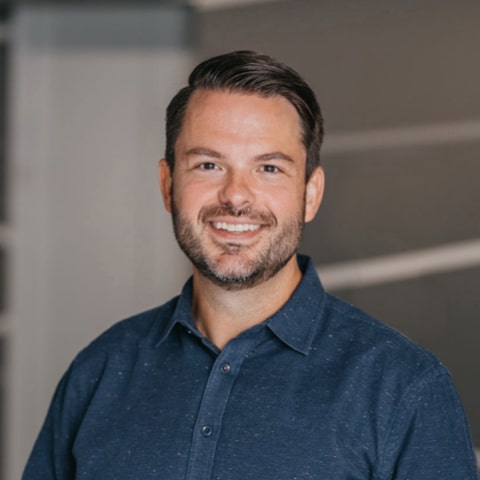
Cory Wheeler
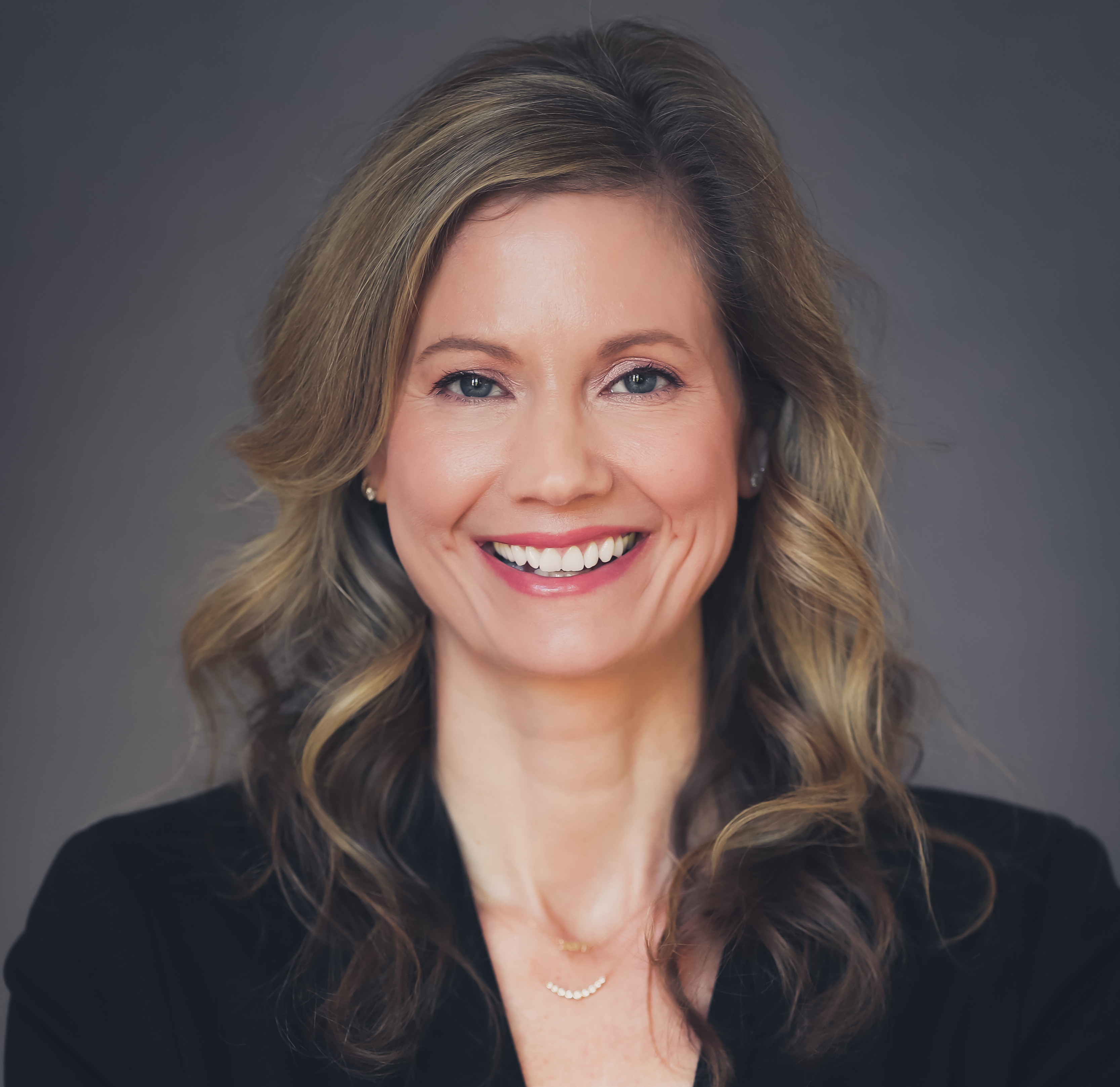
Meredith Albertson
Today's Guests


